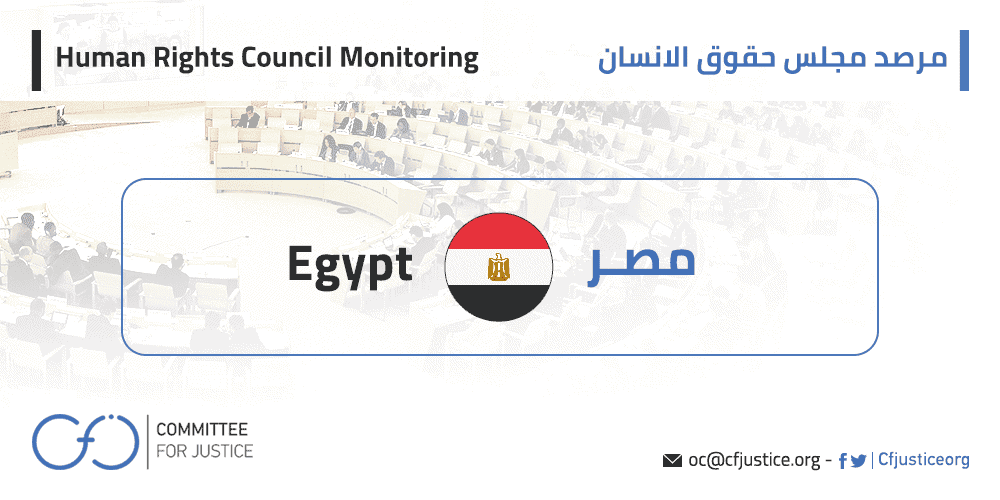News briefing:
Translated and edited by: Committee for Justice
Geneva: May 30, 2021
United Nations human rights experts have condemned the execution by the Egyptian authorities of Wael Saad Tawdros Mikhil, a member of Egypt’s Coptic Christian minority, on 9 May, after he was convicted of murder based on an alleged forced confession.
Mikhail was arbitrarily arrested, tried, convicted and sentenced to death on April 22, 2019, for the murder of the abbot of a monastery. The Court of Cassation upheld the conviction on July 1, 2020.
Ill-treatment and torture:
In a letter to the Egyptian authorities, the experts expressed their grave concern about allegations of torture and ill-treatment of Mikhail and his co-defendant, who was held incommunicado for 27 days, subjected to ill-treatment, and forced to re-enact the alleged crime.
The experts said: “We are particularly concerned by the apparent violation of due process and the abandonment of the highest international safeguard standards required for the lawfulness of the death penalty,” the experts said. “We strongly condemn the Egyptian Government’s actions, especially after directly appealing to the Government, and regrettably, no response was provided prior to the execution.”
“The execution was conducted in secrecy, which is a serious violation of the inherent dignity of the human person and, specifically, violates the prohibition of torture and other cruel, inhuman or degrading treatment or punishment,” they added.
The experts also expressed concern about the timing of the execution, which took place during the blessed month of Ramadan, shortly after the Coptic Church celebrated Easter, without duly notifying the prisoner or the family.
Ending the systematic use of the death penalty in Egypt:
According to information received, more than 50 executions have already been carried out in Egypt this year, with 17 people executed in April, 30 in March, six in February and one in January.
Commenting on this information, the experts said: “The death penalty in retentionist states should be reserved for the most serious crimes, and should be imposed only with extreme exception. However, the prevalence with which the death penalty is being executed in Egypt does not demonstrate that it meets the most stringent requirements or moving towards its abolition.”
The experts called on Egyptian authorities to end their systematic use of the death penalty, including against religious minorities, and to halt pending executions with a view to ensuring that all death sentences are properly reviewed.





